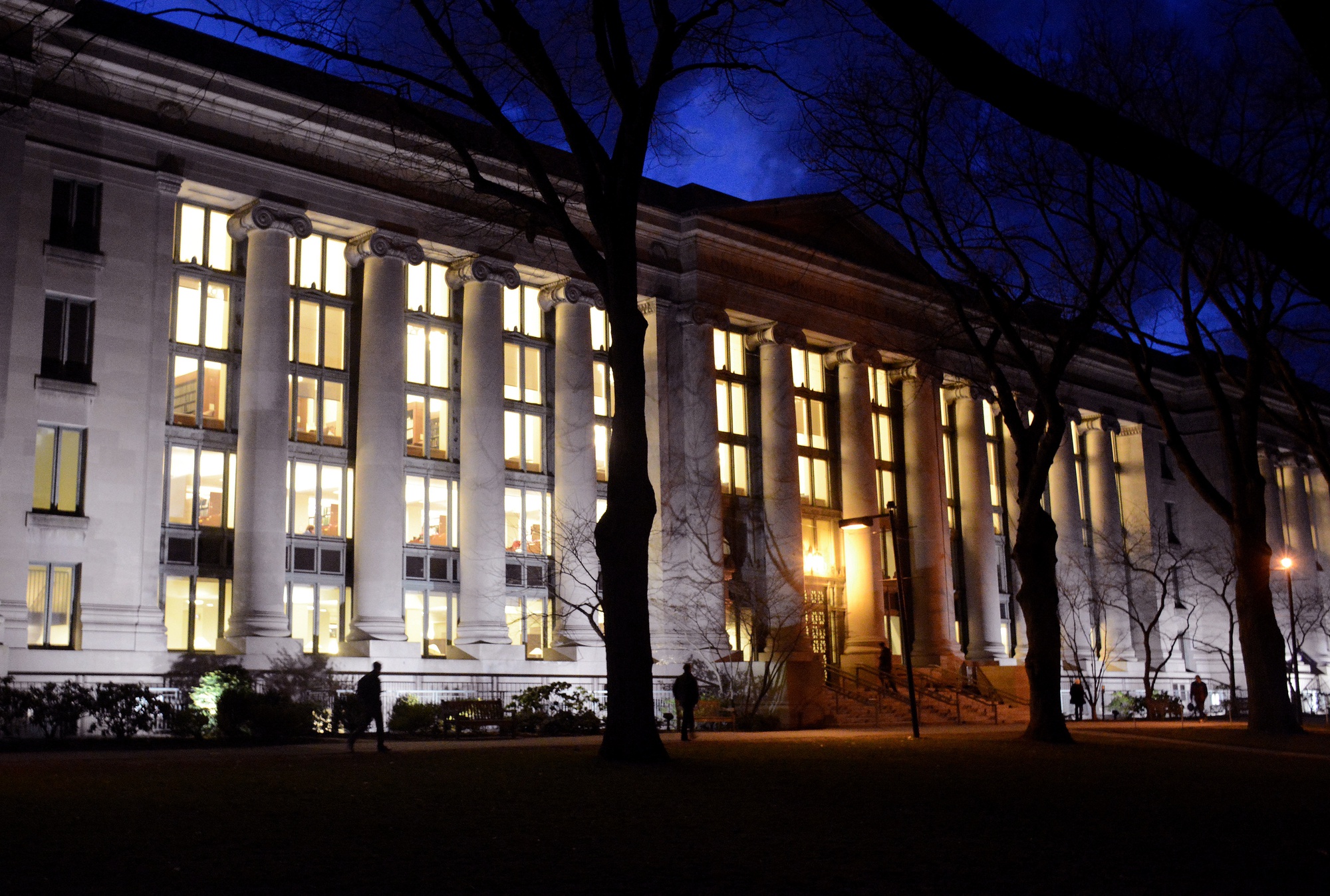
News
Summers Will Not Finish Semester of Teaching as Harvard Investigates Epstein Ties

News
Harvard College Students Report Favoring Divestment from Israel in HUA Survey

News
‘He Should Resign’: Harvard Undergrads Take Hard Line Against Summers Over Epstein Scandal

News
Harvard To Launch New Investigation Into Epstein’s Ties to Summers, Other University Affiliates

News
Harvard Students To Vote on Divestment From Israel in Inaugural HUA Election Survey
Law School Students Participate in Human Rights Hearing on Immigration

UPDATED: March 22, 2017 at 2:10 p.m.
Two students from Harvard Law School’s Immigration and Refugee Clinic argued that the United States was no longer a “safe country” for refugees before the Inter-American Commission on Human Rights in Washington, D.C. Tuesday.
The hearing centered on Canada and the United States’ shared policy on the exchange of refugees. Following President Donald Trump’s recent executive orders cracking down on immigration, the students argued, Canada should no longer bar refugees who first land in the United States from seeking asylum in Canada—currently a provision of the Safe Third Country Agreement, a refugee exchange treaty.
The human rights commission, which promotes human rights in the Western hemisphere, granted the HIRC’s request to participate in this hearing last week. The HIRC’s team—which included HIRC Assistant Director Sabi Ardalan and Law School students Jin U. Kim and Malene C. Alleyne—centered their statements on the status of the agreement, whose integrity Kim said was imperiled by the executive orders.
“[Canada has] a whole set of review procedures that they follow every once and awhile to make sure that the country that was designated as a safe country is still a safe country,” Kim said. “By focusing on the impact of the executive orders, we were arguing that...if Canada actually does the review process again, then the US should not be designated as a safe country of asylum.’”

The HIRC’s appearance before the commission is the clinic’s most recent action against Trump’s immigration orders. The clinic also recently launched the Immigration Response Initiative to provide a range of resources for those impacted by changed immigration and refugee policies under the Trump administration, and has filed a series of amicus briefs in court cases challenging Trump’s immigration orders.
Alleyne, who worked for the commission before beginning her studies at the Law School, said she had an understanding of how to file the paperwork to request a hearing and how to present information effectively to the commission.
“The work involved understanding the procedures, understanding what the hearings mechanism would do, and how the commission could help, and understanding what our ask was,” Alleyne said. “We asked the commission to conduct onsite visits at the US-Canada border to encourage Canada to suspend the agreement and to call a hearing on the Safe Third Country Agreement, but invite Canada to participate because this hearing was with the United States.”
Kim said though the hearing focused on federal United States policies, the government did not send a representative as he said has been the practice for the past 20 years.
“The past administrations have expressed full support of the work that the Inter-American Commision on Human Rights does. The US has always sent representatives, even under the Bush Administration,” Kim said. “I was very disappointed in my own government that in a way they were kind of acting like a stubborn toddler that they really did not want to engage in a constructive dialogue with our colleagues in the Americas.”
Alleyne said the commission has a variety of options for how to address the matters discussed at the hearing, including the site visits the Law School team recommended.
“There are many things the commission could do,” Alleyne said. “The question is what impact it would have on an administration like the Trump Administration.”
—Staff writer Jamie D. Halper can be reached at jamie.halper@thecrimson.com. Follow her on Twitter @JamieDHalper.
This article has been revised to reflect the following correction:
CORRECTION: March 22, 2017
A previous version of this story misstated the name of the Inter-American Commission on Human Rights.
Want to keep up with breaking news? Subscribe to our email newsletter.
